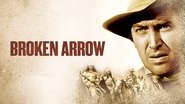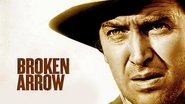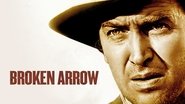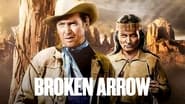ts-folke
This mediocre film barely whispers Fellini or Ford, but the creepiness of Stewart's character bedding a 15 yr. old character destroys any notion of quality. The casting of a nubile Debra Paget is unforgivable. Supposedly Stewart was told she was 17 but when the truth surfaced Jimmy allegedly besotted with guilt. Legend or not, the smooching between Paget and Stewart is downright scuzzy. A noble tale about Cochise is ravaged into obscure perversion and the viewer is screened from levels of qualitly that the script suggests. The seduction by a 41 yr. old hack cowboy onto a 15 yr old tissue child is criminal. Why this film proceeded past hollow reads is a vaunted mystery. Spare yourself the ignominy and avoid this abortion.
retroparat
I saw this movie a few times back a while and then just watched it. First, James Stewart gets shot twice at point blank range and survives, and wants ro kill tbe people thay just shot him, joke as are most movies with violence. Second, Debra Paget was 15 years old at the start of filming.
That is awfully young to be a romantic lead with a 41 year old Stewart . It, really shows how people, especially white people , their own people, that they should protect goes out their way for a cause that was achieved, or lack there of, 80 or so years early than this movie. But because people never give up on these so called causes that we have issue and problems.
It was, as usual, a movie in the late 40s and through the 1950s that broached a so called cause. This cause, as I said earlier, was finished and done but they, the "Holywood" people want to use this not as a call to help the Red man but to try and parallel it, the Red man's cause, with the issues of the day, that day or days was the early 1950s.
And it works because after reading a lot of reviews, from today's people, they are sympethic with the plight of a people, yet not being there and not having their whole super close family and friends wiped out. And those people, today, still talk about it and act like it is so difficult to make it in the U.S.A. today.
Well, the movie, as usual, is a piece that wants to make a point, even at the expense of their own people. The issue is that the reviewers here, if in charge then, would have done the same thing , but sitting here and comfortable it is easy to pass judgment on those that were distraught and left alone in the middle of the southwest. If these reviewers were in charge of the country from the beginning there would not be a country and all of the people of the world that were being destroyed would not have a place to go for freedom. People that come to this country , like my grandparents were happy as h__l to be here and sent 4 boys to WW 2 because it was America and who cares if the enemy may be tour ancestors. They were called names by all sorts of the people in this country but knew they were the sacrifice for their children and grandchildren and so on to put a great foothold on America and not worry about where they came from but move forward and speak the dominant language instead of their own.
But the reviewers are making this movie larger than it is.
Because they think of others so they can get their pat on the back, but stick by your own through, not only the good but the not so good, but no matter the ill and the ill will be fixed id really, really, really wrong, then we will be one people, be one peoples and we will have a greater peace than ever before. Until then movies like these will always fuel the mind of the young to do things they normally would not do and it may have started with their parents who when they were young filled their minds.
It's a nice little western, but when I watch movies it is so tiring to see what they do to a movie instead of making it entertaining. FORGET THE POINT JUST ENTERTAIN.
Thanks
God Bless
James
weezeralfalfa
According to this film, among the Apache, the breaking of an arrow in half was symbolic of a truce agreement. I understand this was actually a custom of the Blackfeet, not the Apache. The Chiricahua Apache, under Cochise and several other leaders, had been waging guerilla warfare against white intruders for at least a decade. The whites demanded protection from the military, who had been mostly ineffective, because of the rough terrain. A gold prospector and would-be peace emissary named Tom Jeffords(Jimmy Stewart) happened upon a wounded Apache boy and nursed him to health. This proved to be his ticket to talk to Cochise(Jeff Chandler) Initially, he finally extracted a promise not to bother the mail carriers who had to ride close to Apache territory. Later, he finally extracted a promise to consider a general truce, provided the terms met his approval. General O. Howard was sent by President Grant(this being 1872) to extract a peace treaty from Cochise. Jeffords guided him to meet with Cochise, and a treaty was signed, giving the Apache control of most of the SE corner area of Arizona territory. But soon some whites who really hated Apaches sprung an ambush on the little party of Cochise, Jeffords, and Jeffords' new wife: Sonseeahray(Morningstar)(Debra Paget). Cochise escaped, and later killed several of the ambushers, but Jeffords and Morningstar didn't find cover fast enough, Jeffords being knocked out by a bullet and left for dead, and Morningstar being killed. Later Jeffords 'wakes up', seemingly with no wound that would cause him to faint. Both Jeffords and Morningstar were crazy to fully expose themselves to multiple rifles, running toward the ambushers. Morningstar was brandishing a knife, so what did she expect?:A very awkward, if crucial, scene.This film is rather unusual for its times in several respects. Firstly, at a time when most westerns were still shot in B&W, it was shot in Technicolor, providing many colorful backdrops from various locations in AZ. Second, it tells the story more from the Native American perspective, as opposed to the usual European viewpoint, still rare, but not unique, at this time(Think "Fort Apache").Thirdly, most of the main characters are based on real people and how they actually interacted with each other. This included General Howard, as well as Jeffords and Cochise. However, Geronimo(Jay Silverheels),as the leader of the treaty-rejecting faction of Apache, didn't really fit into this historical context. Unfortunately, the treaty only lasted 4 years, before an incident caused the territorial whites to demand that the Apache be removed from their area and resettled in a reservation. During this time Jeffords was their government agent. Cochise lived only 2 of those years, dying of natural causes. Unfortunately, nearly all treaties between Native Americans and the US government were short-term expediencies, with the understanding by the US government that eventually all tribes would be confined to reservations, usually far from their traditional homeland, and where useful resources were few. General Howard was later assigned to try to keep the peace in eastern Oregon and Washington. The story of his interactions with Nez Perce Chief Joseph is told in the film "I Will Fight No More Forever": a famous quote from Joseph. Howard was the ideal military commander and treaty negotiator to sue for peace in both these instances. He was unusually tolerant of the Native American viewpoint. Incidentally, he was also a leader in promoting actual equal rights for African Americans, and was a cofounder of Howard University, in Washington, D.C.. If you look closely, you will notice that Howard is missing his right arm, which happened in one of the many Civil War battles he fought in. I found no record of the existence of Sonseeahray,thus assume she is probably fictional. I thought Debra played her a little too wooden and formal. Five years later she again played the lead Indian maiden, again with a rather wooden performance, in "White Feather", with a rather similar plot to the present film, but involving the Cheyenne. Some reviewers comment on the great age disparity between Debra and Stewart as bordering on pedophilia. Occasionally a producer wanted a very young actress to play the romantic lead with an aging male icon who was still very popular. As another example, back in 1941, 16 year old Joan Leslie played a romantic partner, in separate movies, for Gary Cooper and Humphry Bogart, both born at the turn of the century, thus 25 years older than Joan. The producers presumably assumed that very young actresses would be equated by audiences with naïve virginal maidens. In "White Feather", Debra was, more appropriately, only 3 years younger than her costar who, however, lacked Stewart's charisma.Debra and Jeff didn't really fool us as bona fide Apache. Just as whites sometimes were made up to resemble African Americans in musicals, usually the lead Indians in westerns in this era were played by whites, for whatever reason.I don't want to end without mentioning Will Geer, who played the main Apache-hating villain. Will had quite a diverse life, sometimes serving as a folk singer, live theatrical entertainer , political agitator, and botanist, in addition to film and TV assignments. Here, he's just the bad guy, who can't forgive the Apaches for their past transgressions. Will had a major role in another western released in 1950, also shot in Technicolor with spectacular AZ scenery in the background, also largely from the Native American point of view, but the screenwriter must have flunked US history(or hoped we did). It's called "Comanche Territory", and it's a lot more fun than this film or any other western I can think of. Available very cheaply as part of an 10 pack of westerns.
thinker1691
The novel ' Blood Brother ' is the basic for the film " Broken Arrow." Losesly based on the real life efforts of Tom Jeffords who tried to negotiate peace between White Settlers and Cochise (Jeff Chandler) the Apache. It begins when our hero Tom Jeffords (James Stewart) saves a young apache boy wounded and dying of thirst. Later he encounters a multitude of other Apaches who do not spare other white men. There after, Jeffords is determined to bring the two sides together to sign a peace treaty. It's not easy as there are many hot-heads and hate mongering on both sides. In addition, While at the Apache camp, Jeffords falls in love with a native girl called Sonseeahray (Debra Paget) and must convince Gen. Oliver Howard (Basil Ruysdael) and Indian hater Ben Slade (Will Geer) to honor the peace. From it's beginning, Audiences await a bloody outcome of the Indian war, but keep in mind this movie is Hollywood's attempt to turn a new leaf in the cycle of violence on the big screen. I think they did a good job and thus this film becomes a Classic for Steward and Chandler. ****
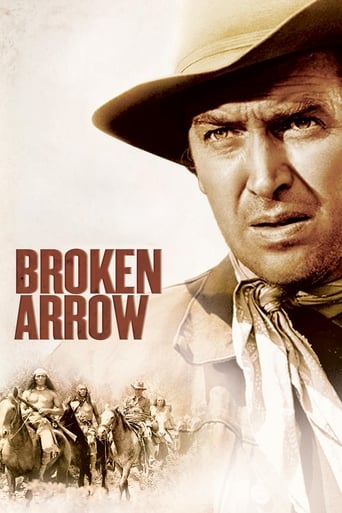
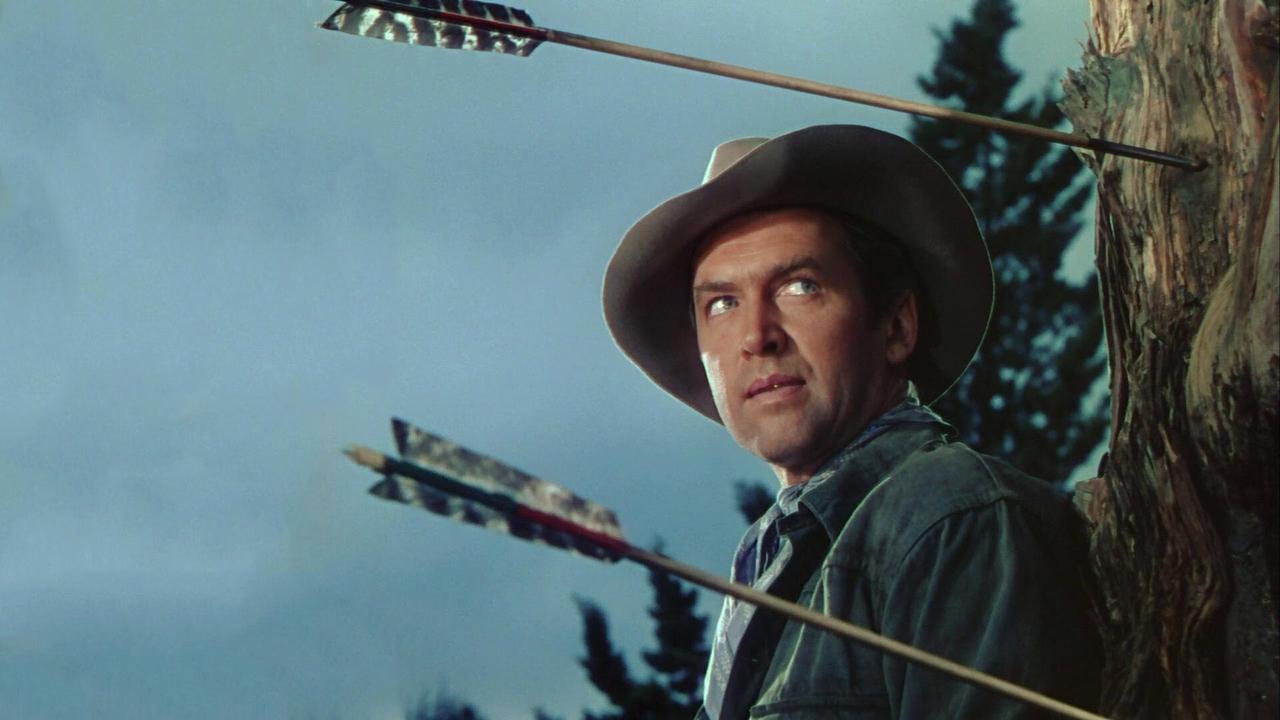

 AD
AD



